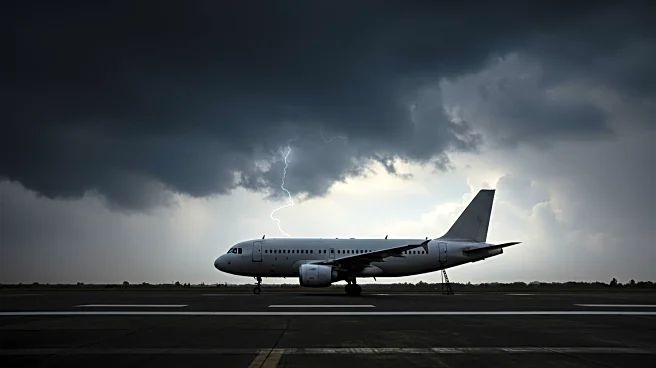What's Happening?
Air Canada has suspended all operations due to a strike by over 10,000 flight attendants, which began after negotiations failed to reach an agreement. The strike, which started early Saturday, has led to the cancellation of hundreds of flights, affecting more than 100,000 passengers globally. The Canadian government intervened, forcing the airline and the union into arbitration to resolve the dispute. The strike marks the first by Air Canada's flight attendants since 1985, and it has caused significant disruptions during the peak summer travel season. The airline has offered full refunds and alternative travel options, but rebooking remains challenging due to high demand.
Why It's Important?
The strike highlights ongoing labor disputes within the airline industry, particularly concerning wages and working conditions. The disruption affects not only passengers but also the broader travel and tourism sectors, potentially leading to economic repercussions. The government's intervention underscores the critical nature of the airline's operations to the national economy and the need for swift resolution to prevent further economic impact. The situation also raises questions about labor rights and the balance between corporate profitability and fair compensation for workers.
What's Next?
The arbitration process will determine the next steps, with the Canada Industrial Relations Board expected to issue a back-to-work order within 24 to 48 hours. Air Canada has indicated that it could take up to a week to fully resume operations once a tentative deal is reached. Stakeholders, including passengers, the airline, and the union, will be closely monitoring the outcome of the arbitration, which could set a precedent for future labor negotiations in the industry.









